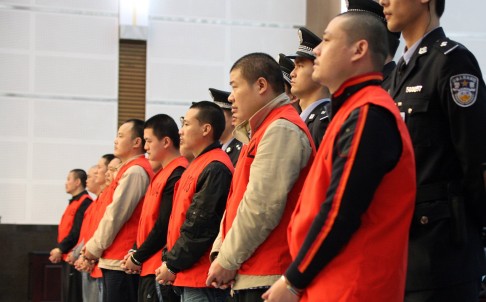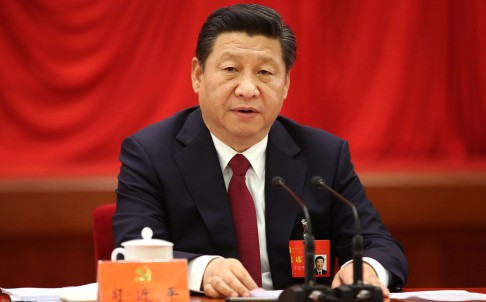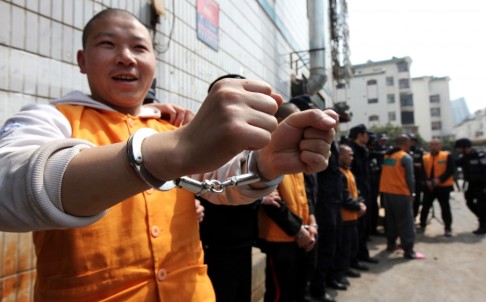China considers regulating smartphone apps: report
PUBLISHED : Monday, 27 October, 2014, 4:33pm
UPDATED : Monday, 27 October, 2014, 6:44pm
Patrick Boehler [email protected]

Men browse their tablet computers and smartphone at the Beijing Capital Airport in Beijing. Photo: AP
Chinese internet watchdogs are looking into ways to regulate the country’s booming market in smartphone applications in an effort to rein in privacy leaks and malware, according to a report in the Beijing News on Monday.
Senior officials from the State Internet Information Office, an agency under the State Council charged with regulating the internet, met with local regulators in Beijing over the weekend to discuss further rules for mobile apps, Chinese media reported.
The meeting also touched upon ways in which app users could seek redress if they had been targeted by malware or if private information had been siphoned off their phones by applications, according to Zhu Wei, an associate law professor at the China University of Political Science and Law.
Zhu said it was time for legal reforms as the nation’s laws lagged behind technology. “There has been a deluge of applications. Many illegal stores have their apps,” he said. “These often violate consumers’ private information and the legal rights and interests of minors. There should be a legislative effort to regulate” smartphone applications, he said.
The online application market has become a “free-for-all”, said Benjamin Cavender, a Shanghai-based analyst with China Market Research Group.
“Applications would access somebody’s contacts without asking for permission or try to record passwords or use that information to steal money from bank accounts,” he said. There is a concern that without regulation you’ll see more of this.”

Chinese consumers spent about one in 10 yuan online, according to data by the consultancy firm iResearch. Online shopping reached 628.8 billion yuan (HK$795 billion) in the second quarter of 2014, up 47.1 per cent from the same period a year earlier.
Most of this figure is still spent on desktop or laptop computers, but the mobile market is growing fast. Revenue on mobile devices grew 104.1 per cent to 44.5 billion yuan in the second quarter, according to iResearch.
Zhu said the focus of new regulation would be threefold: clarifying regulatory responsibilities among government departments; helping consumers find legal remedies against malware; and increasing barriers to entry for developers to spread their apps online.
Charlie Dai, a Beijing-based analyst at market research firm Forrester, said finalising the review of China’s personal information protection law was “a top priority”. The bill, still a draft, has been years in the making and is yet to become law.
Last year, the National People’s Congress amended the Consumer Protection Law in a first major revision since 1993 to account for Chinese consumers increasingly buying online. In March this year, the State Administration for Industry and Commerce released guidelines to regulate online shopping.
Regulating online apps will be “awfully difficult,” Cavender said. Regulators could set up a “clearing house” that checks applications before they are made available for download or they could work with carriers, jointly monitoring applications, but there are many ways to circumvent regulation, he said.
“There is no real simple solution, but having some kind of process could help,” he said.












